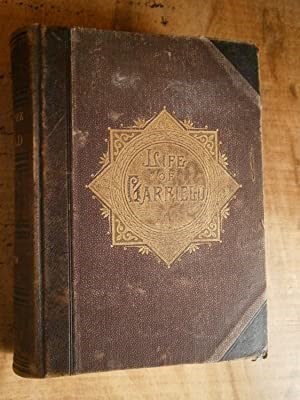Last updated: June 20, 2020
Article
Revolutionary War Garfields

On Wednesday, April 19, 1775, a direct descendant of Edward Garfield, and great-uncle of James Garfield, participated in the first battle of the American Revolution. His name was Abraham Garfield.
It is remarkable enough to know that an ancestor of the twentieth President was at the battle that led, ultimately, to the independence of the United States. What is more remarkable is that Abraham and seven other men signed a legal affidavit describing the events of that revolutionary day:
An affidavit sworn before a magistrate:
LEXINGTON, April 23, 1775.
"We, John Hoar, John Whithead, Abraham Garfield, Benjamin Munroe, Isaac Parker, William Hosmer, John Adams, Gregory Stone, all of Lincoln, in the County of Middlesex, Massachusetts Bay, all of lawful age, do testify and say, that on Wednesday last, we were assembled at Concord, in the morning of said day, in consequence of information received that a brigade of regular troops were on their march to the said town of Concord, who had killed six men at the town of Lexington. About an hour afterwards we saw them approaching, to the number, as we apprehended, of about 1,200, on which we retreated to a hill about eighty rods back, and the said troops then took possession of the hill where we were first posted. Presently after this we saw the troops moving toward the North Bridge, about one mile from the said Concord meeting-house; we then immediately went before them and passed the bridge, just before a party of them, to the number of about two hundred, arrived; they there left about one-half of their two hundred at the bridge, and proceeded with the rest toward Col. Barrett's, about two miles from the said bridge; and the troops that were stationed there, observing our approach, marched back over the bridge and then took up some of the planks; we then hastened our march toward the bridge, and when we had got near the bridge they fired on our men, first three guns, one after the other, and then a considerable number more; and then, and not before (having orders from our commanding officers not to fire till we were fired upon), we fired upon the regulars and they retreated. On their retreat through the town of Lexington to Charlestown, they ravaged and destroyed private property, and burnt three houses, one barn, and one shop."
The courage of these eight men, not only in their actions on April 19, but as importantly in signing this document, in public and under oath, was enormous. They openly declared their acts of rebellion against the British crown in order to rouse their countrymen to join the fight. As James Garfield biographer John C. Ridpath put it; “The[se] patriots not only did the deed but shouldered the responsibility.”
Abraham Garfield was James Garfield’s great-uncle. Solomon Garfield, Abraham’s brother, and Garfield’s great-grandfather, was living at Weston, Massachusetts, when the war broke out. Little is known of him except that he was a soldier of the Revolution, and came out of the war alive, but impoverished by the loss of his property.
Another signer, John Hoar was the great-grandfather of Senator George F. Hoar, presiding officer of the convention which nominated James A. Garfield for the Presidency.
From John C. Ridpath: The Life and Work of James A. Garfield, 1881.
